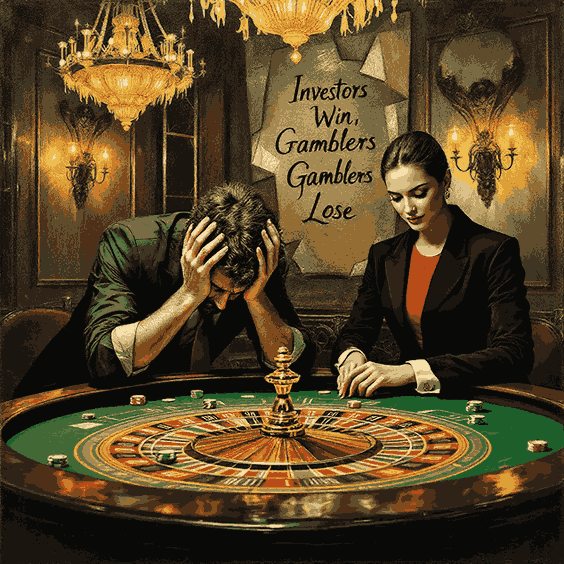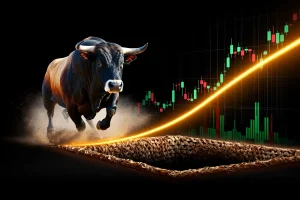What Is the Psychology of Money The Mental Game 99 Percent Lose Before They Even Start
June 7, 2025
Introduction
You’re about to discover why your bank account is a mirror of your mind—and why most financial advice is psychological poison.
While Google’s AI will feed you tepid definitions about “behavioral patterns” and “emotional relationships with finances,” here’s what they won’t tell you: Money is 20% math and 80% mental warfare with yourself.
The Invisible Scripts Running Your Financial Life
The Poverty Programming Nobody Escapes
From the moment you could understand words, you’ve been downloading financial malware into your brain. Your parents’ hushed arguments about bills. That teacher who said “money doesn’t grow on trees.” The friend who called you “cheap” for saving instead of spending.
These aren’t memories—they’re operating systems.
And they’re running 24/7 in the background of every financial decision you make. The psychology of money isn’t about understanding compound interest or diversification. It’s about recognizing that your relationship with money was hijacked before you even had a chance to form your own opinions.
The Four Horsemen of Financial Self-Sabotage
1. The Scarcity Complex: When “Never Enough” Becomes Your Religion
People infected with scarcity thinking could have $10 million in the bank and still feel broke. They:
- Hoard resources like doomsday preppers
- Can’t enjoy what they have because they’re terrified of losing it
- Make fear-based decisions that guarantee mediocre returns
The cure? Abundance thinking isn’t about pretending money is infinite—it’s about recognizing that opportunities to create value are.
2. The Status Trap: Buying Things You Don’t Want to Impress People You Don’t Like
Here’s a $30,000 truth bomb: That luxury car payment isn’t making you happy—it’s making you a slave.
The psychology of money reveals that status purchases follow a predictable death spiral:
- Initial dopamine hit (lasts 2-4 weeks)
- Normalisation (the new becomes ordinary)
- Financial stress (the bills don’t stop)
- Regret and resentment
- Repeat with a bigger purchase
Break the cycle: Before any major purchase, wait 30 days and ask, “Am I buying this for me or for them?”
3. The Comparison Cancer: How Social Media Turned Money Into a Spectator Sport
Every scroll through Instagram is a masterclass in financial FOMO. You’re comparing your behind-the-scenes struggle to everyone else’s highlight reel. This psychological poison:
- Makes you feel perpetually behind
- Triggers impulsive “catch-up” spending
- Blinds you to your own progress
The antidote: Track your net worth monthly. Compare yourself to yourself last year, not to curated fantasies online.
4. Financial Learned Helplessness: The “I’m Just Bad with Money” Excuse
This is the most dangerous mindset because it becomes a self-fulfilling prophecy. People who believe they’re “bad with money”:
- Never learn basic financial skills
- Abdicate responsibility to others (often predators)
- Miss decades of compound growth
The truth: You’re not bad with money. You’re untrained. And unlike your height or eye color, this is completely fixable.
The Mental Models That Create Millionaires
Money as Energy, Not Object
Stop thinking of money as something you “have” and start seeing it as something that flows. Wealthy people understand money is meant to move—through investments, businesses, and value creation. Poor people try to grip it tight, and like sand in a fist, it slips away.
The 10X Value Framework
For every dollar you want to earn, ask: “How can I create $10 of value?” This mental shift transforms you from a taker to a creator. Suddenly, making money isn’t about extracting from others—it’s about expanding the pie.
Asymmetric Risk Recognition
The poor bet on lottery tickets (terrible odds, capped upside). The middle class bet on “safe” mutual funds (mediocre returns, hidden fees). The wealthy bet on themselves (unlimited upside, controllable risk).
The Emotional Mechanics of Wealth Building
Fear: Your Worst Financial Advisor
Fear makes you:
- Sell at market bottoms
- Buy at market tops
- Choose “safe” poverty over calculated risks
- Stay in soul-crushing jobs for “security”
Master fear by asking: “What’s the worst that could realistically happen, and could I handle it?” Usually, the answer is less catastrophic than your amygdala suggests.
Greed: The Silent Portfolio Killer
Greed isn’t wanting more—ambition is healthy. Greed is wanting more without creating more value. It leads to:
- Chasing hot tips and meme stocks
- Overleveraging in bull markets
- Ignoring risk management
- FOMO-driven decisions
Channel greed productively: Instead of trying to extract maximum value from every transaction, focus on creating sustainable value streams.
Shame: The Invisible Tax on Your Future
Money shame keeps people:
- Silent about financial struggles
- Repeating family patterns
- Avoiding financial education
- Making decisions from weakness, not strength
Break shame’s grip: Your net worth is not your self-worth. Money is a tool, not a measure of your humanity.
The Psychological Price Tags Nobody Mentions
The Cost of Cheap
Buying cheap often means buying twice. But the real cost isn’t the money—it’s the mental bandwidth wasted on:
- Constant replacements
- Frustration with poor quality
- Decision fatigue from frequent repurchasing
Buy once, cry once. Quality purchases free mental space for wealth creation.
The Expense of Free
“Free” is often the most expensive price tag:
- Free social media costs your attention (and sanity)
- Free financial advice costs you returns
- Free credit cards cost you discipline
If you’re not paying, you’re the product.
The Wealth Mindset Shifts That Actually Work
From Consumer to Owner
- Poor mindset: “I need the new iPhone”
- Rich mindset: “I need Apple stock”
Every purchase is a choice: own the company or own the product. One appreciates, one depreciates.
From Earner to Equity Builder
- Poor mindset: “I need a higher salary”
- Rich mindset: “I need income-producing assets”
Salaries have ceilings. Asset income doesn’t.
From Saver to Investor
- Poor mindset: “I’m saving for retirement”
- Rich mindset: “I’m building wealth systems”
Inflation eats savers alive. Investors eat inflation for breakfast.
The Dark Psychology Banks and Marketers Use Against You
The Minimum Payment Trap
Credit cards show minimum payments prominently for a reason—paying the minimum maximizes their profits and your slavery. That $5,000 balance? At minimum payments, you’ll pay $15,000 over 20 years.
The Anchoring Assault
Why do they show you the $80,000 car before the $40,000 one? Anchoring. Your brain now thinks $40,000 is “reasonable” when it might still be financial suicide.
The Scarcity Illusion
“Only 3 left in stock!” “Sale ends today!” Artificial scarcity triggers your caveman brain’s fear of missing out. Pro tip: If it’s truly scarce and valuable, it wouldn’t require aggressive marketing.
Building Psychological Wealth Immunity
The 24-Hour Rule
Any purchase over $100? Wait 24 hours. This simple circuit breaker stops 90% of impulse destruction.
The Wealth Thermometer
Track your net worth monthly. What gets measured gets managed. What gets ignored gets infected.
The Value Audit
Monthly question: “Did my spending this month align with my values?” If not, adjust. Money spent against your values is money burned.
The Endgame: Financial Freedom Is Mental Freedom
The psychology of money isn’t about becoming rich—it’s about becoming free. Free from:
- Fear-based decisions
- Status competitions you didn’t sign up for
- Other people’s opinions about your choices
- The anxiety of not having enough
- The prison of lifestyle inflation
When you master your money psychology, the numbers take care of themselves.
🔥 Ready to Flip the Script on Your Finances?
Get ruthless insights from Tactical Investor. No spam. No sugar-coating. Just sharp market psychology, trend anticipation, and war-tested strategy.
Subscribe now and grab our free intel drop: “Winning the Investment Game: Outsmart the Crowd Before It Panics”
Because in the end, the psychology of money is simple: Master your mind, master your money. Let others master neither.
The Power of Unseen Truths













